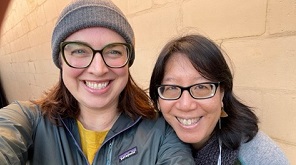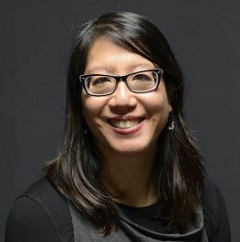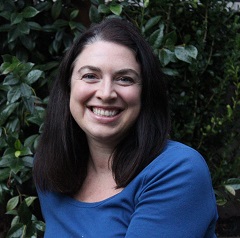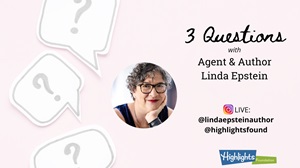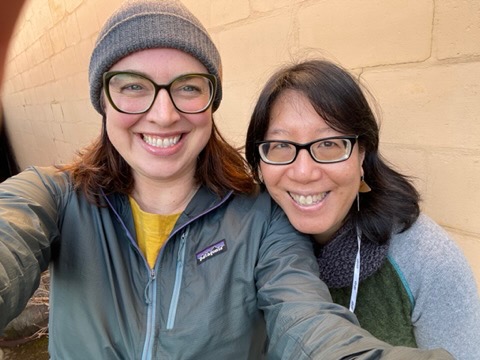 We’ve been critique partners for many years, but it took us a long time (10 years!) to come up with our current feedback process, which has been extremely generative and rewarding, and which we’re excited to share.
We’ve been critique partners for many years, but it took us a long time (10 years!) to come up with our current feedback process, which has been extremely generative and rewarding, and which we’re excited to share.
When we first started exchanging writing, we were both working on projects that we weren’t passionate about, and we didn’t know how to articulate what we needed from a feedback partner.
The process we use now really focuses on responding to the author’s questions and needs. But how did we get here? We decided to interview each other to start answering that question.
Christina Scheuer: Diana, I remember going on vacation with you, and you were giddy because you had stayed up all night finishing a draft of a novel that you were really, really excited about. How did you get from that draft to where you are now?
Diana Ma: I remember that day and how giddy (and sleepy) I was! That novel wasn’t the first one I had written, but it was the first one that I HAD to write. I talked about that novel non-stop during our getaway weekend because I was so excited to share my story with a group of friends who asked thoughtful, curious, engaged questions. They affirmed that what I was doing had value—all without reading a single word of my novel. Looking back, I think that was the start to reframing what a workshop experience can be. It doesn’t have to be experts “fixing” my draft. It can be as simple as a group of people sharing my excitement and asking questions.
Of course, I still needed more feedback because that draft had so many issues. It was exposition-heavy, didn’t have clear stakes, had confusing worldbuilding, and was written in a voice that didn’t fit the YA genre. Up until that novel, I hadn’t written for a while and no longer had critique partners or a writing group, so I asked a few friends if they would read it.
One friend (the only person who had actually read my first, uninspired novel) told me that she didn’t read YA speculative fiction, so she didn’t know if she would be able to give me useful feedback. I was a little surprised by her hesitancy since she gave me excellent feedback on my first novel, and she’s also such an insightful reader and all-around brilliant person. But she wasn’t the only one who was hesitant. I completely trusted my friend’s skills as a beta reader, but despite going through a graduate writing workshop, I wasn’t actually confident that I knew what to do with feedback.
When my friend’s feedback came back, it was very different from the critiques in my graduate writing workshop where the writers would decisively advise me to make big, drastic changes. My friend had very little advice about what to change, but she had lots of great questions that helped me see where a reader might be confused. Answering those questions also helped me clarify what I really wanted to do with my story.
In fact, my friend’s feedback was just what I needed.
But the experience made me wonder why she questioned her ability to give me feedback and why I questioned my own ability to revise based on that feedback. I began to realize that workshops and critique partnerships are built up as a mysterious process that you either know how to do or don’t. We’re convinced that everyone else is doing it “right,” so if we find the process baffling, we believe that confusion is caused by our own inadequacies.
This is absolutely not true, but unfortunately, our belief in the “right” way to give and receive feedback can deprive us of exactly the kind of partnerships we need. My beta readers were invaluable in revising my novel, and I wouldn’t have gotten where I am as a writer without them.
Another lovely result of these partnerships is that it can create an energy-giving feedback cycle. One friend, who also gave me fantastic feedback on my novel, became inspired to come back to her own writing. This gave me the chance to give her feedback and be inspired, in turn, by her wonderful stories. Now she has published a couple of those stories!
Writing can be an isolating endeavor, and it’s so important to have supportive feedback partners or workshop groups to sustain the passion to keep writing. I’m fortunate to have excellent critique partners like you, Christy. I also don’t know what I would do without my Muslim Storyteller peer workshop group. I am so grateful to the Highlights Foundation and the Doris Duke Charitable Foundation for creating and sponsoring the Muslim Storytellers Fellowship!
While I was still querying my novel to get agent representation, I was also fortunate to get a mentorship through the We Need Diverse Books organization with the amazing Swati Avashti. I have another blog post about the WNDB Mentorship Program, but in short, Swati’s mentorship was what I needed to revise my novel and finally get agent representation to start my path to publication. I’m now lucky to be working on my books with my fantastic agents and editors.
A few years later, I had another incredible opportunity (through the Highlights Foundation’s Muslim Storytellers Fellowship) to take a wonderful workshop by Felicia Rose Chavez, author of The Anti-Racist Writing Workshop: How to Decolonize the Creative Classroom. In fact, I’ve actually adapted Chavez’s ideas to change the way I give feedback in my own classes. (You can see more about my process for using Equitable Universal Design principles to assess writing here.)
Between feedback partners, the Muslim Storytellers peer workshop group, We Need Diverse Books, the Highlights Foundation, Chavez’s book, and great agents and editors, I finally felt ready to give and receive more intentional feedback, and that’s when you and I created the wonderful collaborative model that we have now!
CS: I love hearing about how all these pieces came together for you! One thing that strikes me, reading this account, is the way you move between the amazing feedback and mentorship you’ve received and your commitment to continually checking back in with your own gut to see how that feedback lands. I love the model we’ve developed because it has so much room to listen and respond to other people’s feedback on your writing while continuing to check in with your vision and voice. It allows you to develop deep, meaningful relationships with your mentors and feedback partners while also staying true to yourself.
DM: Christy, I remember in our first writing group, you talked about how you weren’t a writer and initially, you didn’t want to workshop your dissertation. What changed your mind? How did you realize that you were a writer?
CS: I think I’m still working on identifying as a writer! When we met, I was focusing on academic writing because it felt safer to write about other writers whom I admired rather than trying to create my own stories. But academic writing was taking all of the joy out of both reading and writing — two of the things I loved most in the world. I had to take a long break before I discovered my love of both. And then one day I was editing a web article about smart home surveillance. I paused to go for a long run, and the scene of a novel started coming to me in bits and pieces. It was the first time I ever had the experience that my friends who write fiction have talked about — the experience of having a story just unfold in my mind, as if someone else was writing it. It was also the first time since I was young that I really felt like a writer. But honestly, I have to constantly remind myself that I am a writer as well as an editor. It’s something I need to recommit to every day.
I also feel really fortunate to have critique partners who encourage me to keep writing! Diana, you’re so good about reminding me that I’m a writer and encouraging me to share my work when I’m ready. Having that external validation is so valuable.
DM: Christy, I love hearing about your path to becoming, or rather, realizing that you are a writer—a fantastic one at that in addition to being an exceptional editor!
CS: Diana, we’ve been workshopping together for a really long time now! I feel like our process is much more streamlined, effective, and comfortable now. Can you talk about some of the adjustments that we’ve made to make it work better for both of us?
DM: It’s so awesome to think about the ways we’ve both grown and how our process has become more relational over the years. One thing I’ve learned is the importance of having conversations about what we expect from the feedback cycle and being comfortable in asking for what we need. For example, I know you are an excellent line editor, and your eye for nuance and language is invaluable when you give me feedback on my poetry. However, when I’m working on my early drafts of a novel, line edits can distract me from the larger questions I have about the stakes of my novel or my main character’s motivations or the pacing.
Because we have such a solid foundation of trust and communication, I know I can say, “I’m not ready for line edits at this stage of my drafting, but it would be great if you could focus on these things.” I love that we’ve adapted the principles of Felicia Rose Chavez’s Anti-Racist Writing Workshop to ask specific questions for feedback. This definitely has been helpful for me both as the person giving and receiving feedback. It’s so much fun to chat with you first about your novel and your authorial vision for it before I read it. I also like having just a few questions to focus on. This relieves the anxiety I get about needing to give feedback on everything.
In the past, I’ve asked for general feedback and sometimes gotten back suggestions that were thoughtful and grounded in a solid understanding of craft—but just weren’t what I wanted or didn’t fit my vision. But I would recognize that the advice I got was probably good, so I’d try to shoehorn these changes into my revision, only to find that my revision took me from the heart of my story. Of course, this wasn’t the fault of my critique partner. How were they to know what I wanted for my story if we hadn’t talked about it beforehand? That’s why it feels so wonderful to have developed the kind of relationship with you where we can talk openly about what we both need from the feedback cycle.
The other thing I love is that our process has evolved into a conversation at the beginning and end of the feedback cycle. You’re better at both marginal and summary notes than I am, and I always find your notes to be helpful, but I’m glad we also have discussions. I give you written notes too, but it’s more natural for me to give feedback through discussion. So much comes out of the dialogue we have about our novels.
Do you remember that time I was stuck on a novel with a tight deadline and booked a writing weekend at an Airbnb only to find out that it was literally next door to you?! We ended up taking long walks around your neighborhood while we talked through the humps in my novel, and that was so huge for me. I went back to my book with a much stronger idea of how to finish it!
Although I can’t always book an Airbnb next door to you, I feel that we’ve developed a great foundation for giving and receiving the feedback we need. One of the best parts of our process is that it’s not dependent on any special knowledge or skill—it’s simply based on respect and open communication.
DM: Christy, I’m going to bounce your question back to you because I’m curious about how this feedback process has been for you. I know you’ve done a lot of training in your journey to become an editor, and I feel that our training has dovetailed really well. How have you incorporated what you’ve learned from that process into our workshopping together?
CS: As you mentioned above, one powerful component of this process is that it frees us up from commenting on every part of the story. My instinct, in the past, has been to give lots and lots of feedback, but receiving too many notes can be really overwhelming! The process we’ve developed helps me to remind myself to slow down and touch base with the author’s vision and questions.
My training as an editor and book coach has taught me how to scaffold discussions to respond to both an author’s concerns and the kinds of feedback that are appropriate for the stage the manuscript is in. It’s not helpful to make a bunch of line level notes when the most important thing to address is the novel’s structure or stakes.
I think the most important thing I’ve learned through our work together is to ask questions — and to stop worrying whether those questions are too obvious or silly. In the past, I’ve felt driven to try to offer a lot of advice to prove that I was somehow smart or insightful enough to be an editor. But that response doesn’t serve writers. Now, I focus on asking lots of questions and listening carefully to the answers, and this process feels truly collaborative and so much more rewarding.

